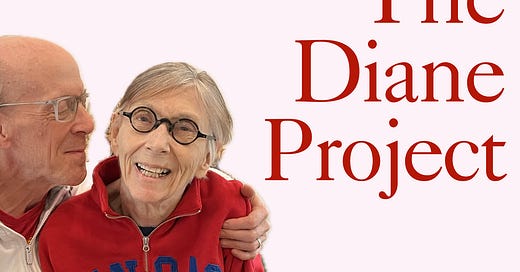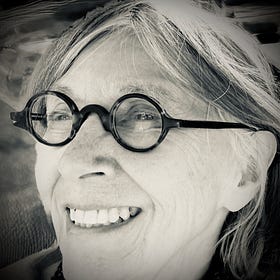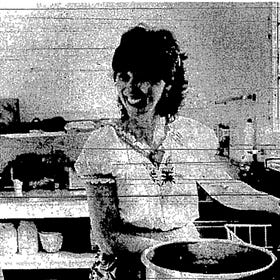A vow I made to myself when I began The Diane Project was that I would not hold myself to either deadlines or word limits. This was a new form of writing for me, and I wanted to give it time to bloom. Therefore I would post only when I felt the story was well and truly done, no matter how long it took or how verbose it got.
Lately I have started to rethink my vow. After wandering in the intellectual desert for most of a year, with scores of drafts, many thousands of words and exactly four published stories on this Substack to show for it, I missed the old days of productivity. I had to admit to myself that deadlines — much as I hated them — made me productive. And word limits helped me make my deadlines by forcing me to cut, cut, cut, removing excess verbiage until the story could squeeze into its container. Even Substack has a word limit:
The breaking point was “This Is Kansas Day,” the essay that many of you began reading when I published Part 1 last month. “Kansas Day” is unlike any story I’ve written. It’s sweeping, covering more than 30 years of our personal and professional lives. It’s challenging: I’m taking hard looks at myself and my marriage to make sense of the story I’m telling here.
And it’s got a purpose. My time with Diane is drawing to a close, and I don’t want that to end without taking full stock of what we did together. I’m at that age where time moves with relentless, unforgiving speed and I know that if I don’t write “Kansas Day” now, I never will.
That’s a pretty long preamble and it’s making me cry, so let’s cut to the chase.
A podcast alternative to reading long stories
When the first draft of “Kansas Day” blew past 5,000 words and I didn’t even notice, I realized I had to chop this thing up. I pulled out a legal pad, got down my major ideas and organized them into a three-parter.
Part 1 weighed in at a little more than 2,000 words. Then I wrote Part 2 … and it went to twice that length. I thought about breaking Part 2 into two parts, like they do with the seasons of streaming shows. But I felt that would require finding an artificial break point to the story. I’m not exactly Charles Dickens or Harriet Beecher Stowe, enticing you to pick up next week’s edition to see how the cliffhanger resolves.
That night, the matter still unresolved, I went to bed listening to an audiobook. Sometime in the night I awoke, literally listening to the solution:
Along with the prose version of each story, I will now read my stories to you in my own, non-artificial, non-intelligent voice. Basically it’s the audiobook version of the newsletter.
This will be a welcome alternative for those of you who find reading screen after screen of text to be a slog. For those who listen to podcasts, here’s a new one to add!
The first three stories are linked below. I’ve also added audio widgets to their respective stories on Substack. There’s an audio-only page of my site as well.
For pod people, here are the feeds:
I’m getting YouTube Music Podcasts added as well. If there’s another podcast app that I can add, let me know. The feeds are also listed on each episode’s page (along with a totally unnecessary AI-generated transcript).
Going forward, each story of The Diane Project will be accompanied by its audio version when it posts, and the podcast will be released at the same time.
I am currently waiting to get over a cold before reading Parts 1 and 2 of “This Is Kansas Day.” So look for that — not to hold myself to a deadline or anything — sometime next week.
Take care,
Aaron
P.S. If you aren’t getting TDP by email, please subscribe. I’ll send you my free guide, “What Every New Cognitive Caregiver Needs To Know.”
Episode 1
This is The Diane Project (REMIX)
I released a second version of my first recording with sweetened sound and the missing music added in.
Episode 2
This is soup club
Don’t let doomscrolling ruin a good time with your loved one or with friends. A story about our devices, the pull toward negativity, and the surprisingly good news about positivity. Plus lots and lots of soup.
Episode 3
This is the kiss test
Caregiving is like learning to float downriver. A story about love in the liminal space where cognition isn’t required.









Thank you for sharing.
It's me, Lynda. Thank you for taking time to keep people abreast of Diane's blossoming life. I know you know it's okay to change your mind about what you will or will not do. The most important thing in my opinion is to take care of you. Cry, if you must. Don't write if you can't. Ask for help if you don't think you need it. With life comes death. It's all about the in between. I love you both. Onward.